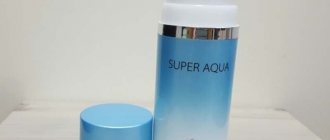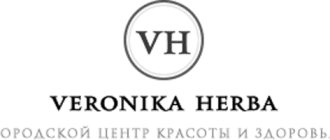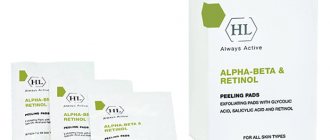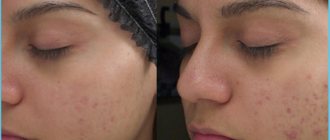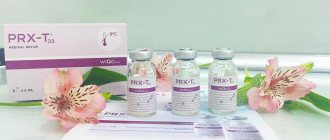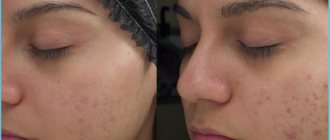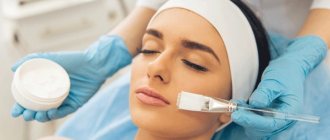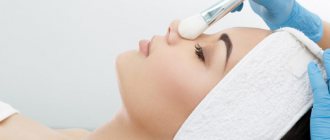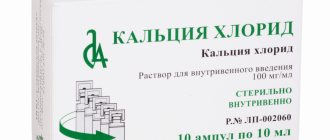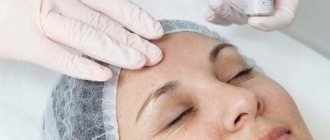Due to the action of three types of acids, Jessner's chemical peeling removes the stratum corneum of the epidermis, and along with it pimples, the effects of acne, pigment spots and wrinkles, and effectively fights blackheads and small scars. Peeling is suitable for any age and skin type. Characterized by its gentle effect, it copes with many cosmetic defects. The recovery period depends on the selected depth of exposure. With proper care, within three days you will be able to evaluate how effective the Jessner peel is in the before and after photos.
This care procedure can be carried out both in the clinic and at home. However, independently determining the required concentration of the active composition is very problematic: the risk of chemical burns is too great.
The need for Jessner peeling is due to the following indications:
- A large number of freckles and age spots;
- Contaminated enlarged pores;
- The presence of wrinkles, post-acne, scars and scars;
- Uneven color and texture of the face;
- Signs of skin aging.
The principle of Jessner chemical peeling - key features of the procedure
Jessner peeling, similar to any other cosmetic procedure, involves several stages of implementation:
- The master determines the individual intolerance of the composition by the client’s body.
- Next, the skin is cleaned, usually using a special solution that provides a disinfecting effect, removing residual sebum.
- After the cleaning procedure, the peeling solution is carefully applied using a cotton or gauze swab. It is quite normal to experience a burning sensation throughout the procedure as the top layer of skin is removed. Mild discomfort is certainly present, but is fully compensated by the result of the procedure.
- Applying a special solution to neutralize the effect of the solution, removing any remaining product.
Within a week after the procedure, there will be a problem of skin redness, peeling, followed by peeling off in layers. Such changes are actually something to keep in mind because not everyone is ready to go outside with such changes. But it’s worth being patient for a week to achieve the complex effect of complete skin renewal, gaining an image of beauty, health and youth. After 2-3 weeks, it is recommended to repeat the procedure. This course is carried out 4-5 more times to consolidate the effect. However, the duration of the course is determined individually for each client; for many, 2-3 procedures are enough.
Features of the technique
This procedure is the most popular option for chemical peeling. It is designed for a wide spectrum of action, so it solves problems such as acne in adolescence, age spots, scars after rashes, age-related changes and oily seborrhea. A Jessner peel can be superficial or medium depending on the number of layers of product applied to the skin. As a rule, it contains three main components:
- Lactic acid. Provides a whitening and exfoliating effect, stimulates the synthesis of natural collagen, maintains the correct moisture balance in the epidermis.
- Salicylic acid. Performs the function of an anti-inflammatory substance, antiseptic and keratolytic. Under its influence, other peeling components penetrate the dermis more easily. It reduces itching and enhances regeneration, which ensures smoothing of the relief and elimination of surface defects.
- Resorcinol. Disinfects the skin, protects it from burns and scarring even when applying a large amount of the product. Helps fight acne, seborrhea and other skin diseases.
Sometimes additional components are added to the composition, for example, retinol, which enhances exfoliation. Jessner peels are not recommended for local use as the treated and untreated areas will contrast in color and texture of the epidermis. It is applied to the entire face (sometimes even to the eyelids), and is also used to rejuvenate other problem areas: hands, neck, décolleté.
Jessner peeling is carried out in two levels. The procedure can be median or superficial:
- Superficial - the procedure is based on applying only one layer of solution, keeping it on the surface for a short time to ensure deep penetration into the composition of the epidermis. As a rule, a procedure is performed to prepare the skin for medium peels. The skin after the superficial procedure does not imply significant peeling.
- The middle procedure is working with three or more amounts of solution. In this case, the skin after peeling begins to turn red, the next day it completely acquires a brown tint, covered with a crust or film, with tightening, with severe peeling and flaking after a few days.
Peeling composition
Jessner peeling is performed by cosmetologists to affect the skin at the mid-level. Also, the composition is often used for a delicate (superficial) effect on the skin, increasing the concentration of ingredients.
This type of peeling is a cocktail consisting of alpha and beta hydroxy acids, as well as an antiseptic:
- salicylic acid is a beta-hydroxy acid, a keratolytic that has anti-inflammatory, sebum-regulating and antibacterial effects;
- lactic acid - one of the mildest AHA acids, which has a moisturizing and exfoliating effect;
- Resorcinol is an antiseptic that suppresses the development of pathogenic bacteria and reduces the risk of developing negative skin reactions.
Thus, lactic acid whitens, helps exfoliate dead skin cells, activates collagen synthesis, and also stimulates cell renewal and moisturizes.
Salicylic acid, in turn, works as an antiseptic, effectively penetrating the skin and cleansing pores of impurities. It also dries out inflammation, and most importantly, prevents itching after the procedure.
Resorcinol is an ingredient that enhances the effect of acids and also destroys bacteria.
Features and rules of care after Jessner peeling
To achieve the desired effect, it is important not only to the quality of the procedure, but also to proper care after peeling. To do this, the cosmetologist explains in detail to the client the step-by-step procedure, with recommended products and preparations for caring for the skin condition.
- Be sure to strictly follow the recommendations and instructions of the cosmetologist.
- After peeling, it is unacceptable to wash your face for 12 hours.
- Usually, a cosmetologist individually selects a set of products for intensive moisturizing and gradual restoration of the skin - the most important point for the desired effect, which should not be neglected.
- Only boiled water is suitable for washing; the surface of the skin should be wiped with blotting movements.
- You should temporarily abandon standard cosmetics and homemade masks. The bet should be made in favor of restorative, wound-healing creams and serums.
- The option of sunbathing is unacceptable; you can walk outside only if you apply a UV filter to your face with a high protection factor.
Contraindications for use
Before the procedure, a consultation with a cosmetologist is required, who will assess the condition of the skin and confirm the absence of restrictions, because Jessner peeling has the following list of contraindications:
- rosacea;
- autoimmune disorders;
- oncological pathologies;
- period of pregnancy and lactation;
- infectious and viral dermatological diseases (herpes, etc.);
- damage to the skin and neoplasms (abrasions, scratches, papillomas, local purulent inflammation, warts);
- allergic reactions to the components of the product;
- endocrine diseases (diabetes mellitus, etc.);
- elevated body temperature and other symptoms of ARVI;
- taking drugs of the retinoid group (Roaccutane, etc.).
Kinds
Based on the depth of impact on the skin, peeling can be superficial, medium and deep. In the first version, it affects the stratum corneum of the skin; the active mixture is applied in one layer. In the second option, the ingredients are applied 2-3 times, the procedure affects the entire thickness of the epidermis, without reaching the basement membrane. Jessner's deep peeling provides a noticeable rejuvenating effect due to stimulation under the basement membrane. It causes rapid regeneration of skin cells throughout the entire depth and removes the upper keratinized layer of the epidermis.
Indications for use
Jessener peeling at home is indicated for numerous skin problems. If the procedure is carried out correctly and the recommendations are followed during the rehabilitation period, you will be able to get rid of:
- rosacea;
- acne;
- scars and stretch marks on the skin;
- acne;
- seborrhea;
- age spots;
- freckles;
- facial wrinkles;
- greasy shine;
- enlarged pores;
- excessive facial hair and ingrown hairs;
- sagging skin;
- uneven color.
Thus, a product based on lactic, salicylic acid and resorcinol is suitable for people of any age. The procedure is especially relevant in adolescence, when the sebaceous glands, under the influence of hormones, produce large amounts of sebum, as well as after the age of 35, when the skin loses its turgor and healthy color.
Jesser peeling can be performed for any skin type, in particular for combination and sensitive skin. The procedure is especially relevant for those with oily skin, because salicylic and lactic acids perfectly eliminate excessive amounts of fat on the surface of the skin and in the pores of the epidermis.
Popular product brands
To carry out Jessner peeling at home, you can buy the ingredients at the pharmacy, make the composition yourself, and perform the procedure. This is fraught with various errors leading to complications. Even professionals do not risk reducing the cost of intervention in this way. Moreover, there are many ready-made compositions for high-quality Jessner peeling:
- Onmacabim. A classic version from the Israeli brand Onmakabim. The product not only thoroughly cleanses the skin and fights minor imperfections, but also has a noticeable lifting effect. The substance has a strong antibacterial and antiseborrheic effect. A 30 ml bottle costs 3.7 thousand rubles.
- Janssen Cosmetics. The soft version of the German brand Inspira med mfa is suitable for dry, sensitive skin. The action of the product is aimed at cleansing and eliminating minor imperfections. A 50 ml bottle costs from 2 thousand rubles.
- Sesderma. Medicines from the Mediderma Melaspeel series are suitable for solving various problems. French Sesderma products can eliminate severe acne, seborrheic keratosis, lentigo, melasma, and scars. The composition contains lactic, salicylic, citric acids. 60 ml bottles of the substance are sold for 7–8 thousand rubles.
- New peel. A popular option is the modified Jessner Anti Aging Gel peel. A mixture of lactic, salicylic, and citric acids promote tissue renewal and rejuvenation. A 50 ml bottle sells for 3 thousand rubles.
- Peel medical (BCmed). Classic version made in the USA. The product is suitable for obtaining a rejuvenating effect, improving tissue health, and smoothing the relief. A 30 ml bottle is sold for 2.7 thousand rubles.
- MedicControl Peel. A popular option is Salicylicpeel JS in the form of a lotion with a classic composition, but with a reduced content of lactic acid (10%). The product from the Russian company Martinex is characterized by a strong exfoliating and depigmenting effect. The drug MCP is popular for the fight against comedones and acne. A 30 ml bottle costs 2.5 thousand rubles.
- Enerpeel JR. Italian Enerpil has a classic composition with a high content of lactic acid (20%). This option is characterized by a healing result of the work. A 70 ml bottle of the product costs 1.3 thousand rubles.
It is recommended to completely entrust the choice of substance to a cosmetologist. The option of a product with a suitable composition, the nuances of the procedure depend on the individual characteristics of the patient.
Specifics of the procedure
For surface cleaning, a special composition is applied in one layer. The middle one requires at least 3 layers of application, the drying time between which is at least 5 minutes. It is practically safe and is not accompanied by side effects in the form of scars.
Deep peeling is accompanied by simultaneous application of the composition four times.
Expert opinion
Elena Apostolyuk
Cosmetologist
Any chemical procedure involving acids is associated with damage to the epidermis. Most complications resulting from exposure to aggressive substances appear due to damage to the integrity of the skin, or are associated with the onset of an inflammatory process.
This is an inevitable and normal response of the body to mechanical intervention: redness and swelling appear, peeling is observed, and dark spots appear.
As side effects, acne may become more active, new comedones may form, and lumps may occur.
A professional will help determine the cause. Due to personal characteristics, the body may react with an allergic outbreak or exacerbation of a skin infection. In this case, the doctor prescribes treatment procedures using zinc-containing drugs and anti-inflammatory drugs.
The consequence of chemical peeling can be the formation of a burn on the skin. A similar phenomenon occurs due to a large number of applied layers, or in case of untimely removal of the composition with water.
A dense crust will “cover” the tissue until restoration. An ointment based on panthenol will help the skin cope with the consequences faster. At the same time, you need to take formulations that contain fatty acids and promote accelerated tissue healing.
How long the redness lasts after a Jessner peel depends on how intensively the chemical procedure was performed. During recovery after superficial exposure, uniform redness of the skin is observed for 1–2 days. With medium cleansing, facial redness persists for up to 5 days.
Peeling is typical for any chemical procedure. After visiting the salon, it lasts up to one week and indicates that the process of tissue renewal has begun. Typically, after a Jessner peel, the face begins to peel off on the 3rd day.
When this does not happen, this indicates that the skin is poorly susceptible to external irritants. If there is no peeling, the cosmetologist increases the number of layers applied during the subsequent session, and retinol is used as a mask.
Consequences in the form of peeling, redness of the skin, according to the time of their appearance, can be divided into:
- instant, which lasts up to 14 days;
- regenerating, appearing after 2.5–6 weeks;
- persistent changes formed after the process of cell restoration after 20–50 days.
To minimize undesirable consequences, it is necessary to pre-prepare the tissues for subsequent manipulations, as well as provide timely skin care after Jessner peeling.
Patient reviews
Opinions about the option vary. Some patients notice dramatic results, repeatedly turn to Jessner peeling, and recommend others to try it. There are patients who expect more or do not see positive changes as a result of the intervention.
The patient does not notice the result of the procedure.
The patient liked the result and recommends the option.
How often can you do it
A course of procedures is required to achieve the desired lasting effect. The number and frequency of sessions is determined by a specialist, based on the condition of the epidermis. Also takes into account age and purpose.
For sensitive skin, 5-6 sessions are usually prescribed. For problematic oily skin, you need 8 to 10 repetitions. Between visits to the beauty salon, you should take breaks of 3-5 weeks. The first time there will most likely be one or two layers.
The effect lasts for some time. For most, the ideal look lasts up to 6 months. Others enjoy smoothness and shine in just 10 days. Much depends not only on the quality of the components and the skills of the craftsman, but also on subsequent care. It is important to follow the recommendations so that the result lasts as long as possible.
Opinion of cosmetologists
Doctors use medium peels in their work, get positive results, and grateful reviews from patients
Cosmetologists pay attention to the fact that the method of exfoliation is serious, entails the need for certain behavior, brings positive changes, but does not always completely solve existing aesthetic problems. Doctors say the option is not suitable for home use
The cosmetologist offers an option along with other techniques to improve the picture, but not to completely solve the problem.
The cosmetologist does not recommend using the option at home.
Indications and contraindications
The peeling technique we are considering is suitable for both mature and young skin suffering from defects inherent in adolescence and youth.
Indications:
- pimples and traces of them;
- bright pigmentation of facial skin;
- bright wrinkles provoked by facial expressions;
- correction of scars and scarring;
- freckles.
You can get rid of skin defects thanks to the procedure
Contraindications:
- herpes;
- diabetes;
- cancer diseases;
- problems with the functioning of the immune system;
- women carrying a baby or breastfeeding it;
- mental problems of various types.
Contraindications should be taken into account
On a note! If these contraindications are not taken into account, the client will suffer from various complications - there may be an exacerbation of herpes, diabetes or cancer, as well as an allergic reaction.
If you want to achieve the best result, you can combine the procedure we are considering with TCA peeling and biorevitalization. If you approach the issue systematically, your face will look beautiful, fit and young.
